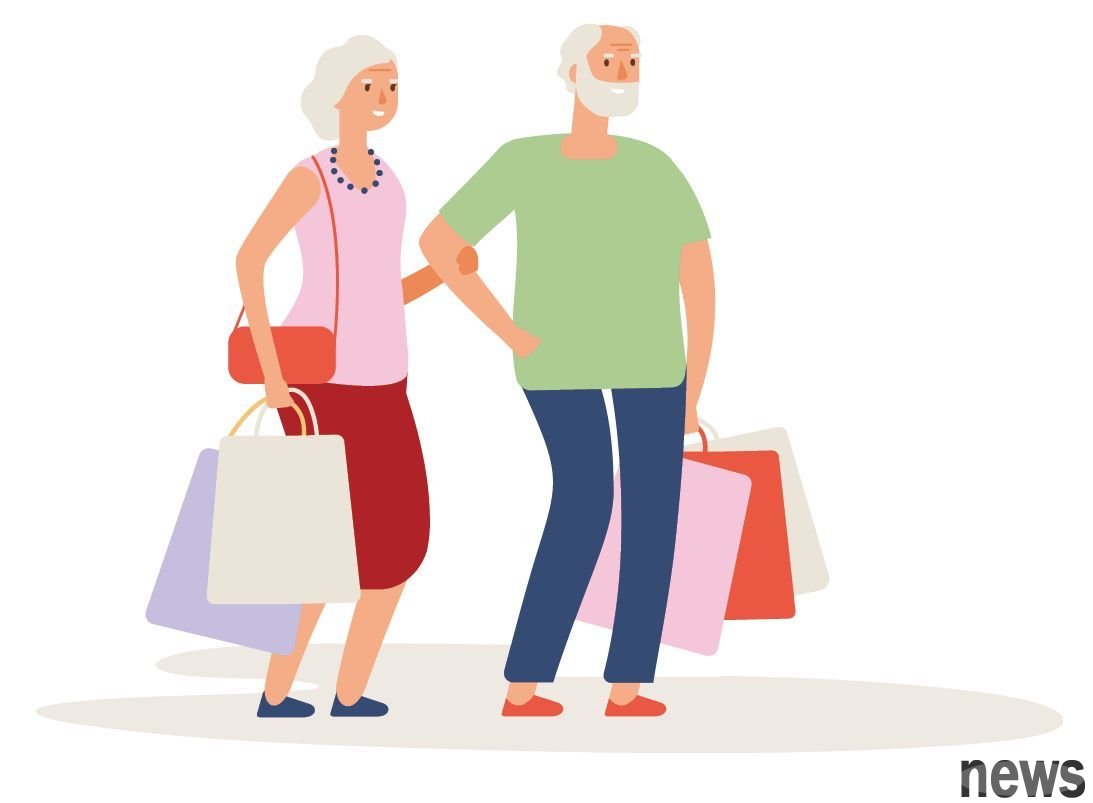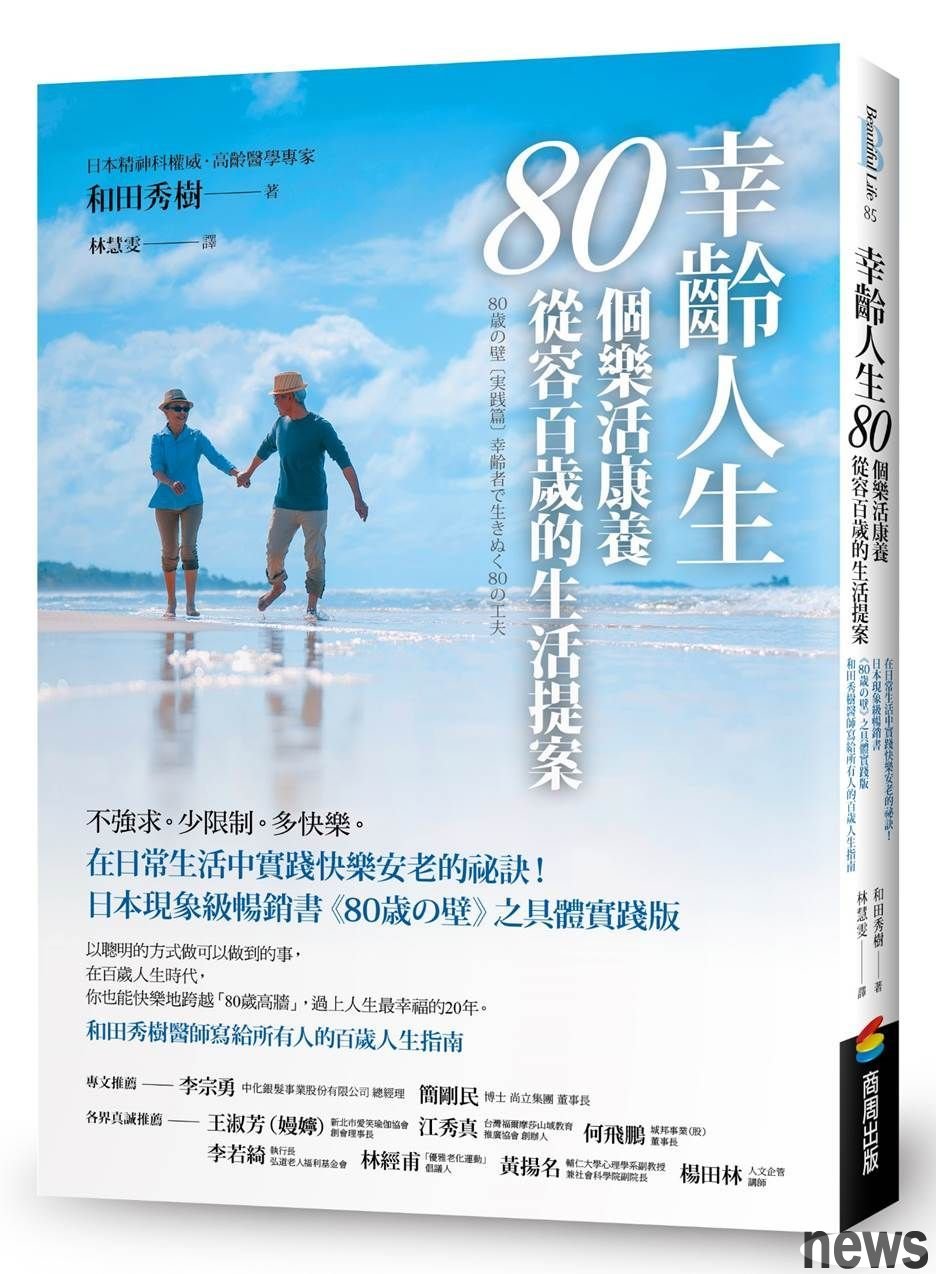 Don’t spend your days. Only by wasting money can you stay away from aging
Don’t spend your days. Only by wasting money can you stay away from agingIn fact, "spending money" is a matter of "much need to be brain-wrenching".
For example, when shopping, you must first carefully observe the product, and compare it with other products, and choose the best option that meets the budget. "Shopping" is a behavior that requires full observation and judgment and creativity - of course, it also helps prevent dementia.
Therefore, I suggest that high-age men should be able to at least "select and buy" what they need to use. Don’t throw everything to your wife, try to buy clothes, trousers, pants, etc. you want to wear, just to avoid the brain’s dormant.
{9999}{9999}When I usually see a clinic, I occasionally encounter some young people asking me: "I can't raise my worries" or "I don't know what I want to do." I feel depressed and depressed. After asking, I realized that the supplies around them are usually purchased by my mother. In the long run, in this state of not having to do anything by yourself, it is certainly difficult to realize the "self-development" action intention.
I also want to further recommend that everyone "spend more money". I think, "Don't spend more time and waste more money" can make people live more vitality.
For example, if you are living in Tokyo, you can occasionally go to the silver seats and sit in the Old Empire bar at the Imperial Hotel to have a drink; otherwise you can at least have a cup of coffee and a cake in the main hall. You can "buy non-daily experiences" by spending about two thousand days, making your brain full of vitality.
Not only that, today's capitalist society pursues "customer first". As long as you spend money, the people in the store will be busy and attentive, making people feel respected. Even if you have fewer heads after retirement, you can still be a guest, which can prevent you from being stunned on the emotional level.
In addition, I also suggest that you can spend money on hormone replenishment or medical treatment. This type of treatment usually does not apply health insurance, so it is not a paycheck, but it can make people look lighter and brains become more energetic.
Of course, this can only be done with free money on your hands. On the contrary, if you plan to leave all this money to your son, it will become the induction fire for everyone to "fight for family business". I believe no one will be happy about this happening! In this era, you have to spend all the money you make - I think this is the real "filial son".
{twenty one} {twenty two}
Eat nine cents instead of eight centsIn fact, even if you are in the age of age, the heat required by the body will not change as everyone imagined.
Although the heat required by the body will be somewhat different depending on the degree of activity (the amount of activity in the body), compared with the 2300 to 2650 calories required by men aged 18 to 29, 1800 to 2100 calories are also required for over 75 years old. Even those with later age (reprint: Japan calls those with later age over 75) need 80% of the heat at a young age. For women, although the heat required is slightly less, it still requires "nearly 80% of the heat at a young age", which is the same as the ratio.
However, in real life, it is rare for older people who eat as much as "80%" of their age. Although this is a bit abrupt, I still think this is caused by the adverse effects of Behahara's "Training for Nursing". This book, which began to be circulated since three centuries, is said to be a "eat eight cents" as the "criterion" of health.
In fact, after age, many people still follow the principle of "coarse food", and most seniors do not get the required heat. This is easy to fall into a state of poor nutrition, causing muscle mass to decline and then to become senile debilitation (in the state between health and care). There are not a few such people.
After a high age, your appetite will decline. If you deliberately control yourself to "eat eight cents", you will become more and more poor in nutrition and even shorten your life.
Before the age of 40-50, you will definitely suffer from a habit of life due to "excessive nutrition". However, after high age, the senile dysfunction caused by poor nutrition is more worth worrying about.
In fact, the "Summary of the National Health and Nutrition Survey Results" (first year of Reiwa) issued by the Ministry of Health and Health of Japan pointed out that among people over 65, 12.4% of men and 20.7% of women have a tendency to have poor nutrition; and after 85 years of age, 17.2% of men and 27.9% of women have a tendency to have poor nutrition.
Once poor nutrition, the most worrying thing is to "fall". Due to insufficient protein, muscle mass declines, but a little bump is likely to fall. There are many cases of this disease in bed due to fall and fractures.
Therefore, it is recommended that seniors should pay attention to letting themselves eat "nine-point" rather than "eight-point". While avoiding binge eating, enjoy the food you want to eat and the amount you feel satisfied with - this is what I call "eating nine cents".
